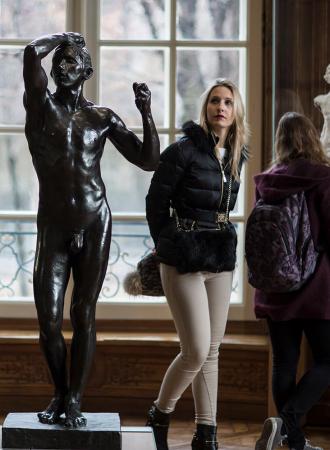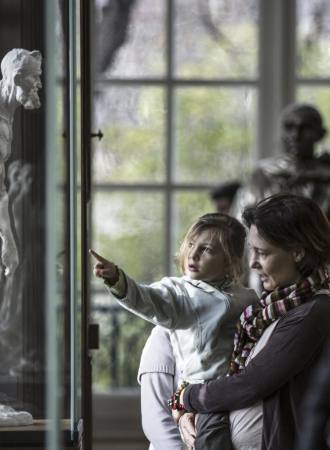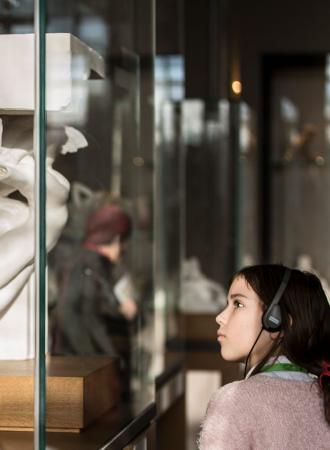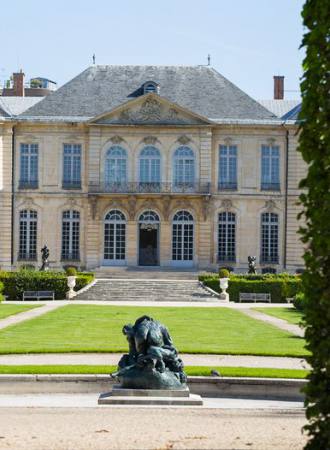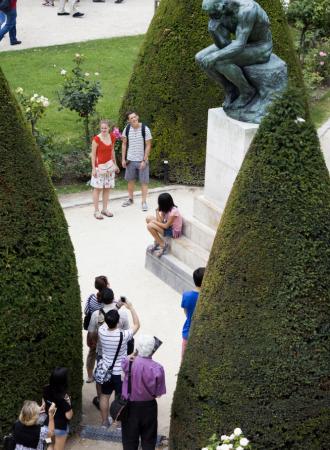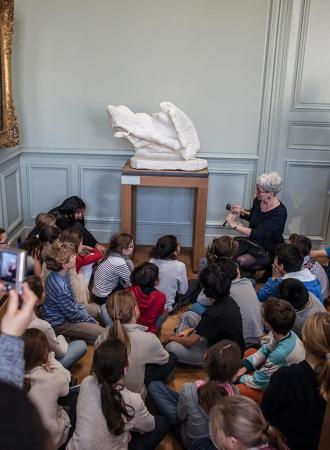Search the site
The Tower of Labour
Auguste Rodin (1840-1917)
Extolling work and workers was an important line of thought in the 19th century, which saw the rise of the industrial and working classes. The emergence of Naturalism at the end of the century contributed to this glorification. Asked by Armand Dayot (1851-1934) and Desbois to coordinate a project for the 1900 Exposition Universelle, Rodin responded with enthusiasm.The idea of a collective project appealed to him. He understood the notion of hard work; it was a value that meant a great deal to him. As he would say in 1911, “How much happier humanity would be, if work, instead of being the ransom of existence, was its goal.”
This monument, designed like a staircase tower, recalls the towers of Blois, Chambord and Pisa, as well as the Trajan Column, Rome, in the way its bas-reliefs on the theme of craftsmen spiral up the shaft. The base with the crypt is also reminiscent of the Roman monument. Underground workers, miners, in particular, were to be represented on it, while mankind’s other activities were depicted in an ascending movement on the column leading up to the poet, the philosopher and the artist.
On the base, the figures of Night and Day symbolize work’s infinite movement; on the top, Benedictions, later transformed into an independent group, recall that work is carried out with “love and joy”. The mining accident that occurred at Courriマres in 1906 revived interest in the project for a monument evoking both “hive and lighthouse”, which would have been 130 metres high and had The Gates of Hell for its entrance, but it never came to fruition.
LOCATE the artwork in the museum
Musée Rodin - Meudon, plaster gallery
We cannot guarantee the presence of all our artworks; some may be out on loan.
Completion date :
1898-1899
Dimensions :
H. 151 cm ; W. 65 cm ; D. 68 cm
Materials :
Plaster
Inventory number :
S.00169
Credits :
© Photographic Agency of musée Rodin - Jérome Manoukian
Additional information
Iconography
- The Tower of Labour(zip, 1204 ko)


